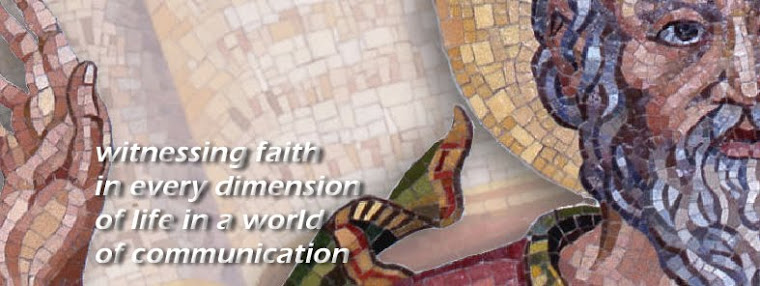Migrants, refugees, and victims of human trafficking: people like ourselves, human beings with a name, hopes and dreams, fears and disappointments
Washington (Agenzia Fides) - “The starting point for ministering to migrants, refugees, trafficked persons is to understand their situation and all its components, personal, social, economic, political in the light of God’s Word and to recognize its commitment to get involved. Naturally it also has to address those factors that cause their uprootedness. In this commitment the Church is guided by the 'permanent principles' of its 'social doctrine [that] constitute the very heart of Catholic social teaching.'” This was affirmed today by the President of the Pontifical Council for the Pastoral Care of Migrants and Itinerant People, Archbishop Antonio Maria Veglio, in his opening speech at the Regional Consultation of the American Bishops' Conferences on Migration being held in Washington, DC, June 2-4, on the theme: “Renewing Hope, Seeking Justice.” The Consultation is focusing on responding better to the needs of migrants and refugees in the Americas, confronting the deeper causes of migration through a more efficient coordination of services, pastoral care, and advocacy policies.
Archbishop Veglio pointed out that the United States is home to 38 million immigrants and “the USA has been shaped by the efforts of migrants, in former days but also nowadays. Many immigrants arrive to the U.S. with economic goals, expectations and their contribution. Migrants have become essential for the US economy. They make up a large part of the national workforce.” However the changes seen in society – the rapid growth in the Spanish language spoken in the churches, pastoral work that largely depends on foreign priests, the concentration of ethnic restaurants in a given area - “do not reflect an increased acceptance of “otherness” and a willingness to a mutual - reciprocal change. A change in the person arriving, but also a modification in the receiving society.”
Referring to the issue of “undocumented immigrants,” the Archbishop explained that many of them “have been living in the country for years, working and contributing to the economy and the social security system.” The number of deportations in 2008 surpassed 350,000 people, and “one of the not foreseen results in Central America has been the increase of gang-based violence by youngsters.” The children of immigrants, who have been raised in the USA, the only country they really know, see their future threatened by not being able to continue their studies. The Church supports them through the DREAM Act (Development, Relief and Education for Alien Minors), working for the regularization of the approximately 12 million undocumented migrants. However, Archbishop Veglio said, this should be united to immigration reform and “in order to achieve this, the necessary political will is required to address humanely undocumented migration.” Over the last thirty years more than 2 million refugees were allowed to settle, spontaneously or in a resettlement process, in the USA. “The Reception and Placement Programs of the Department of State supports them for a relatively short time, with a one-time grant,” the Archbishop said. After this period they are considered to have become sufficiently integrated to take care of themselves and be self-sufficient. It is more than evident that this does not work. They lack sufficient support. Many end up with hardly any money left after paying their rent and will join the American poor and end up in the same situation. “One has to note that the process of resettlement cannot be the same for each individual or for each community. In order to be realistic, one has to take into account the unique needs and experiences of the individual, which will result in different programmes, also with a request for a different and, most probably, a longer period of support. This should lead to self-sufficiency, employment and in the end integration in the country to become participants in society.”
The drama of human trafficking is present in almost every country, “whether it is sexual exploitation, forced labour or bonded labour, child soldiers, or abusive ways of adoption.” The Archbishop continued: “The root causes of trafficking are not just poverty and unemployment in developing countries. The demand for cheap labour, low priced products or 'exotic or unusual sex' is also a root cause of trafficking than must be addressed. The different forms of trafficking constitute human rights violations, which demand distinct approaches and measures in order to restore the dignity of the victims.”
A new form of displacement is now on its way, the President of the Pontifical Council for Migrants said: “People are moving away, since they can no longer make a living as a results of desertification and growing water scarcity, increasing sea-levels and 'salinisation' of agricultural land. Climate change is also increasingly causing natural disasters, like flooding and storms. As a result conflicts about resources increase. This new form of displacement will have enormous consequences for decades to come. The frequently cited and accepted estimates of 200 million24 climate induced displaced persons by 2050 indicate the gigantic dimension of the problem. Human migration will undoubtedly be one of the most significant consequences of the change in climate.”
In concluding his address, Archbishop Veglio recalled how the Church and dioceses have been active in this area, promoting a series of projects, activities, etc. This is why “the risk exists that we are so much taken up by our involvement that we just perceive those in migration as work, cases or a job.
Hospitality can protect us from such behavior. Hospitality is not so much a task as a way of living our lives and of sharing...Welcome, compassion and equal treatment are all part of an appropriate Christian response, which will break down social barriers. It is a response to the needs of persons, but also a recognition of their worth and common humanity.” (SL) (Agenzia Fides 2/06/2010)
Links:
Complete text of the address, in English
http://www.fides.org/eng/documents/ConsAmerMigr_02062010_ingl.doc
Complete text of the address, in Spanish
http://www.fides.org/spa/documents/ConsAmerMigr_02062010_spa.doc


No comments:
Post a Comment